|
| BACK | Table of Contents | NEXT |
|
| BACK | Table of Contents | NEXT |
|
Personality Psychology
at Washington University in St. Louis |
||||
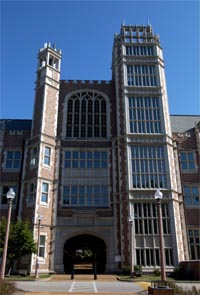
|
||||
|
The psychology department at Washington University in St. Louis (Wash U) is bursting with personality psychologists. Among the faculty, our group includes: |
||||
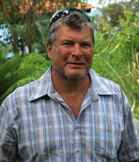
|
Randy Larsen: Randy conducts research on emotion, primarily in terms of differences between people. His current research is on cognition-emotion interaction, with emphasis on such phenomena as attentional capture, automatic vigilance, and perceptual speed. He also has interests in the self-management of emotion. |
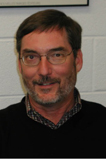
|
Tom Oltmanns: Tom is interested in the assessment of psychopathology. His current work uses peer nomination to explore discrepancies between self-report and informant measures in the assessment of personality disorders. The overall goal is to investigate interpersonal perception for pathological personality traits. | |
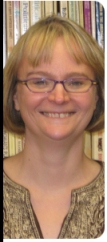
|
Kristen Kling: Kristen's recent work focuses on how personality can be useful when examining and interpreting gender differences. For example, women earn higher grades than their SAT scores would predict, and Kling's work shows that this pattern holds because women are higher in Conscientiousness than men. |

|
Mike Strube: Mike's recent research focuses on how variation in performance in important life domains affects self-esteem, affect, and well-being, with an emphasis on individual difference moderators. Other work is investigating individual difference predictors of applied decision making such as the decision to sign an organ donor card and to follow health care regimens. | |
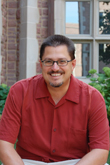
|
Bob Krueger: Bob is interested in understanding the origins of individual differences in personality and psychopathology. His research focuses on developing comprehensive, empirically-based models of personality and psychopathology, and modeling the ways in which genetic and environmental forces intertwine in the development of human individual differences. |
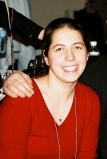
|
Simine Vazire: Simine conducts research on the accuracy of self- and other-perceptions of personality. Her current work examines differences between how people see themselves, how they are seen by others, and how they behave. The goal is to understand the limits and function of self-knowledge. | |
|
Here are some of the people in our Personality Research Group, which meets once a month for food, drinks, and discussion: |
||||
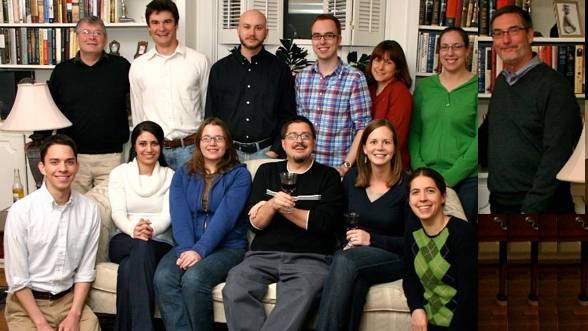 |
||||
|
A number of psychology faculty also conduct personality-relevant research, including Deanna Barch, Todd Braver, and Dave Balota, plus Robert Cloninger in our psychiatry department. Our genetics program also has interests in personality. The Psychology department features excellent resources, including abundant lab space and equipment. Each lab is individually tailored to meet the specific needs of the researchers. For example, Simine Vazire's lab is equipped with remote-controlled video cameras for behavioral observation, and Randy Larsen's lab has multiple cubicles for running individual participants. We also have plenty of shared research space (e.g., a computer lab dedicated to running participants), a large research participant pool and plenty of eager, dedicated undergraduate research assistants. These resources, and the excellent staff support, make research (and life!) enjoyable and productive at Wash U. We have an active, lively group of graduate students doing personality research in both the social/personality and clinical Ph.D. programs. Our graduate students are encouraged to develop expertise in multiple methods and often collaborate across areas (e.g., clinical, cognitive). Requirements for the Ph.D. are focused on training and publication, and include a second-year project, a qualifying paper or oral exam, and of course a dissertation. Our goal is to train students for an academic career, and to make graduate school a stimulating, productive, and fun experience. The generous financial support we offer graduate students, the social atmosphere in the department (including monthly happy hours), and the lively intellectual atmosphere all contribute to this goal. Hear what some of our graduate students have to say: |
||||
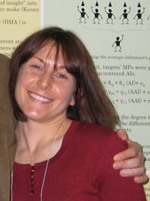 Erika's column |
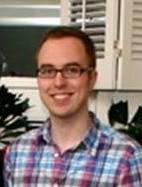 Nick's column |
|||
| BACK | Table of Contents | NEXT |